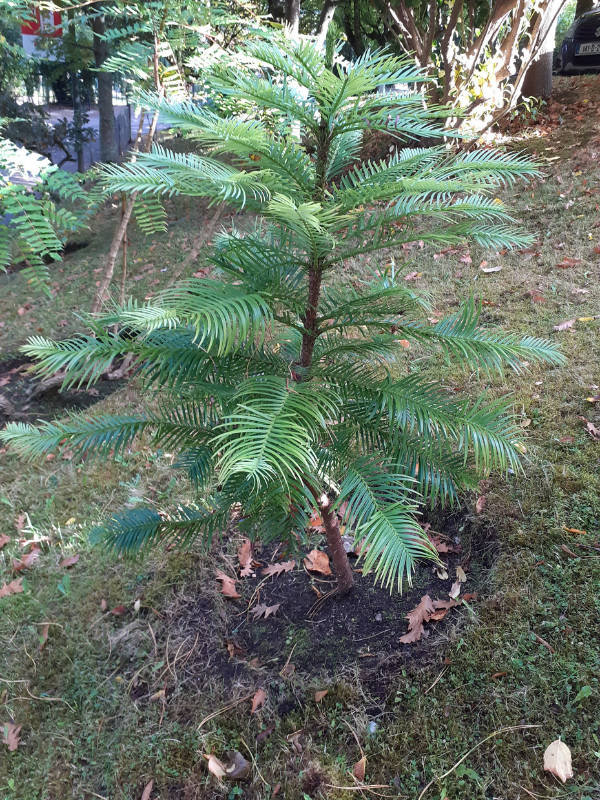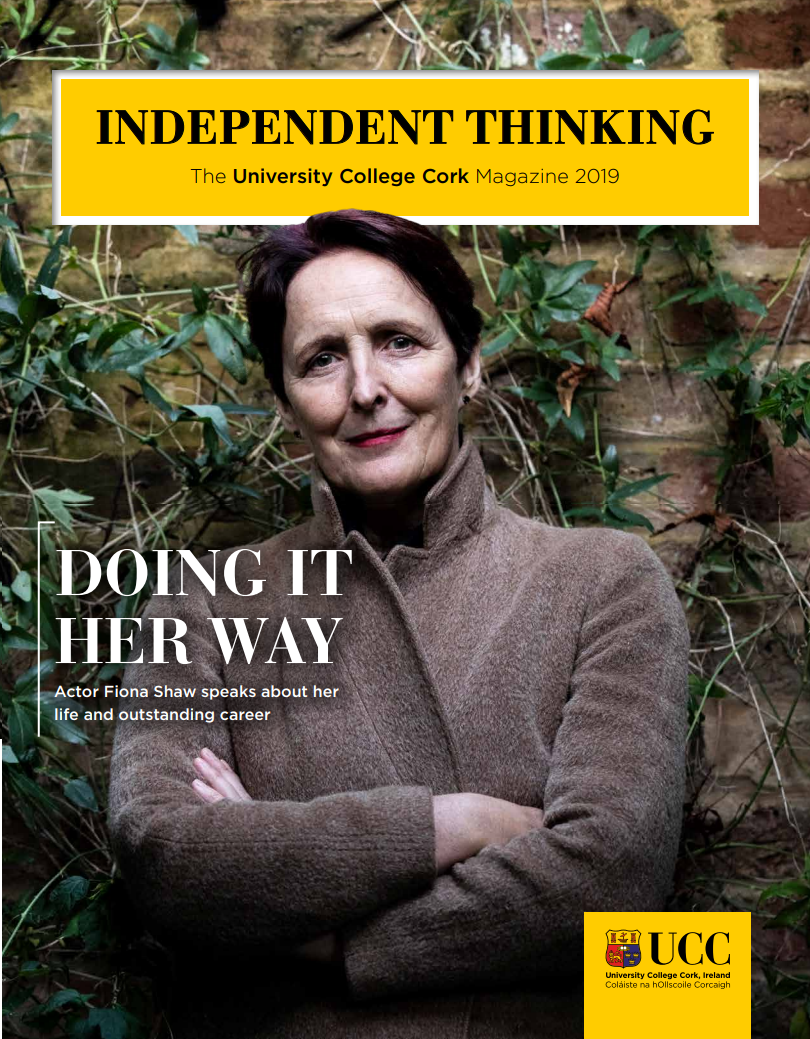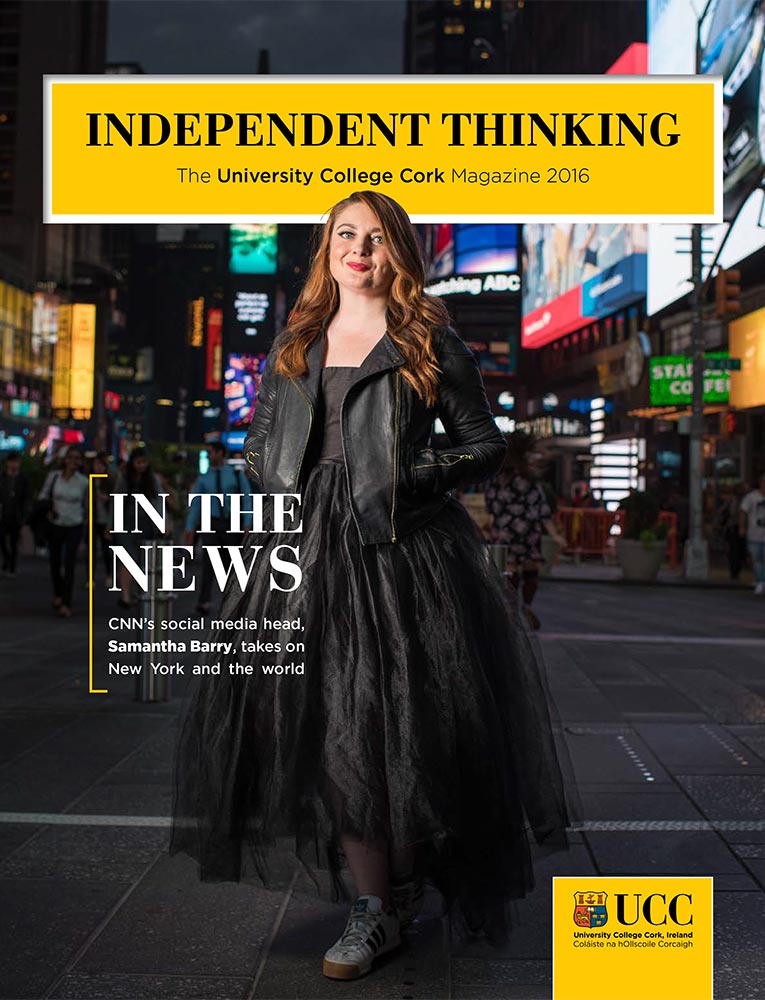Features
- President's Welcome
- Raising Hope
- Back to UCC for Cork’s Crime Writing Queen
- Committed to Memory
- An Ghaeilge i Lár an Aonaigh san Aontas Eorpach
- UCC Love Stories: Summer 2023
- Spotlight On Sport
- Crassvirus Breakthrough Is A ‘Crowning Moment’
- Envisioning Future Sustainable Cities
- The ‘Living Classroom’: Engaging With the ‘Great Existential Challenges of Our Time’
- Summer Celebrations
The ‘Living Classroom’: Engaging With the ‘Great Existential Challenges of Our Time’
Dr Eoin Lettice of the SFI-funded Irish Tree Explorers Network (ITEN) initiative explains the concept of the ‘living classroom’ – an innovative tool aimed at sparking new conversations around some of our greatest environmental and social issues.

It is more important than ever to engage the whole of society in conversations around the great existential challenges of our time – climate change, biodiversity loss and food security. With that in mind, our new Science Foundation Ireland (SFI)-funded project will carry out this sort of engagement in ‘living classroom’ environments all over Ireland.
Irish Tree Explorers Network (ITEN) has its beginnings in the UCC Green Campus-funded ‘Open Arboretum Project’ and the subsequent ‘Tree Explorers’ projects funded by SFI, which all focused on using the wonderful UCC Arboretum as a teaching, research and engagement tool.
An arboretum is a tree collection, generally with a particular focus on education, research and conservation, and the UCC Arboretum is as old as the university itself. With 2,500 trees and around 130 different species across the campus, the academic link to this collection has been re-instated with these recent projects led by myself and my colleague, Dr Barbara Doyle Prestwich. One of the highlights of our recent activities was the successful accreditation of the UCC Arboretum by ArbNet. This means that UCC’s arboretum is now accredited alongside the Royal Botanic Gardens in Sydney, the Oxford Botanic Garden at the University of Oxford and the Arboretum de Paris to name a few.

It may surprise some people to hear that the arboretum is the oldest outreach and public engagement activity in the university. From the outset, the university’s botanical collections were open to the public as well as to students and staff. The President’s Report (by Sir Robert Kane) from 1856 notes that the arboretum was ‘accessible to the students at all College hours and free access was given to the public generally at hours not devoted to class instruction’.
It is that spirit of openness and enthusiasm for public engagement that has led to the recent activities of the UCC Arboretum group based at the School of Biological, Earth and Environmental Sciences. As well as running regular guided tours of the collection for various groups, including primary and secondary school classes, we have developed a self-guided tour; created short videos for the collection; and most recently held a very successful one-day symposium on developing sustainable urban forests.
Ireland’s weather is not always reliable enough to make organising outdoor events easy. Regardless, it has been a core principle of our activities that, as much as possible, we hold events outdoors in the arboretum. There is good evidence that the use of ‘living collections’ as a tool for STEM education and public understanding can improve outcomes. Arboreta are similar to modern zoos in that the individual living organisms within have a role as an ambassador for their, often endangered, wild relatives. Such living botanical collections allow visitors to explore their relationship with and impact on other species.
UCC campus is home to some of the most endangered species on the planet. I don’t think that is widely appreciated by all staff, students and visitors. The fact that they are plant species rather than animals reinforces the idea of ‘plant blindness’ – where plants are often ignored or not valued in the same way as animals. If some of the most endangered animal species in the world (the African elephant or Bengal tiger, for instance) roamed the grounds of UCC, people may take more notice.

Rare specimens in the UCC ‘living collection’ include the Wollemi ‘pine’ (Wollemia nobilis). Considered extinct up until the mid-1990s, it is still one of the rarest trees in the world with only about 100 in the wild, in its native Australia. Its survival is a testament to plant biotechnology as a tool for conservation.
Another noteworthy species amongst the collection is the Giant Sequoia (Sequoiadendron giganteum). These are dotted around campus but two of them form one of the most iconic views of the university as they are located between the Boole Library and the Quadrangle. In the last couple of years, we have lost over 20 per cent of these trees in the wild due to wild fires – a problem exacerbated by a warming climate. As such, these trees are an example of ex situ conservation. It’s no replacement for protecting the habitats in the wild but it forms a ‘Noah’s Ark’ type reserve for threatened biodiversity.
Not content with engaging people with the UCC tree collection, the ITEN project will use sites dotted around the country (in partnership with Coillte and the Office of Public Works) to further this work. There is ample international evidence for a positive relationship between access to and learning in green spaces and overall educational outcomes for students. Simply put, learning in and around nature boosts grades and helps students engage with complex topics including those of an environmental nature. There is also a considerable body of evidence linking green spaces and ‘urban forests’ to mental and physical wellbeing and this is one of the topics that were explored in our recent symposium.
There is no doubt that, as well as being an important teaching, research and outreach tool, the UCC Arboretum contributes massively to making our campus one of the most beautiful and rewarding places to work and to learn.
Dr Eoin Lettice is a lecturer in Plant Science at University College Cork.
For more information about the UCC Arboretum, including the projects and activities mentioned above, visit the dedicated website.



